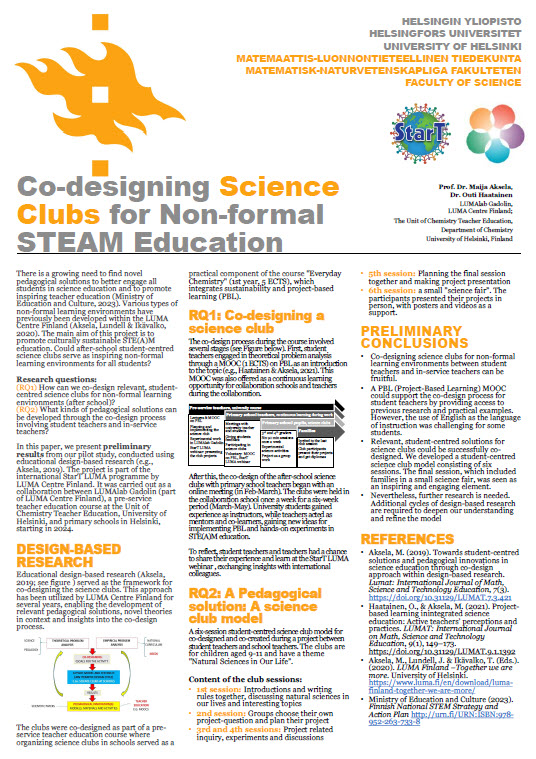Co-designing Science Clubs for Non-formal STE(A)M Learning Environments through Design-based Research
Keywords:
chemistry teacher education, non-formal learning environment, STEAM, co-design, science clubAbstract
This pilot study explores the co-design of after-school science clubs as non-formal learning environments to promote culturally sustainable STE(A)M education. Using educational design-based research (Aksela, 2019) as a framework, the project was implemented through a collaboration between LUMAlab Gadolin (part of LUMA Centre Finland), the University of Helsinki’s pre-service chemistry teacher education program, and primary schools in Helsinki. The science clubs were co-designed and piloted in 2024 between student teachers and teachers at schools. The clubs, aimed at children aged 9–11, followed a six-week structure centered on project-based learning and everyday science phenomena. A MOOC on project-based learning was built to support the co-design process. Preliminary findings suggest that co-designing science clubs fosters student-centered pedagogical innovations. Further research is needed to refine the model through additional design-based research cycles.

Downloads
Published
How to Cite
Issue
Section
URN
License
Copyright (c) 2025 Maija Aksela, Outi Haatainen

This work is licensed under a Creative Commons Attribution 4.0 International License.




